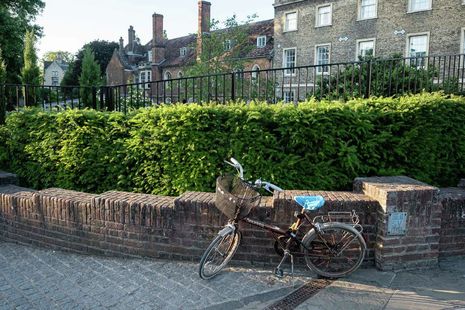First summer schools launched to widen postgraduate participation
The new programmes will offer research experience to undergraduate students from underrepresented groups

Cambridge will run two pilot summer schools for UK undergraduate students, it has been announced, with the aim of diversifying applications for postgraduate study at the University.
The summer schools, one in life sciences and one in social sciences, will offer an introduction to postgraduate study and research experience to students from universities in the UK and Ireland. They will also support students through the postgraduate application process.
Dr Katherine Powlesland, who has been appointed as the first Postgraduate Widening Participation Manager, stated that “diversifying postgraduate study is a sector-wide challenge, but Cambridge is now forging a clear path that I hope could support change in the sector as a whole.”
In developing the University’s first postgraduate widening participation scheme, Powlesland has worked on recording contextual information about candidates and understanding how and why applicants are underrepresented at Cambridge.
Discussing how contextual information will be assessed by the University, Powlesland said, “Academic results will still be the starting point for application to postgraduate study, but if you’ve achieved a so-called ‘good’ degree – usually a 2:1 or above - while you’ve had to, for example, work a part-time job, or if you’ve had caring responsibilities whilst you’ve studied, that’s an even more impressive achievement and it’s important that admissions officers know about it.”
Both programmes offer a paid research experience for students. The life sciences residential programme is focused on supporting biology and biomedical science students — including medics and veterinary medics — and the laboratories hosting the students, who will stay free of charge at Fitzwilliam College, aim to stay in contact with them after the summer school to provide postgraduate application support.
Dr Matthias Landgraf, one of the life sciences summer school’s coordinators, said that “Creativity and innovation thrive in an environment that is varied and diverse, where people from different backgrounds and with different skills come together. This programme is also about access to information, helping these students create their own networks of connections.”
The social sciences summer school, meanwhile, offers undergraduate students a bursary of £650 and matches them with both a PhD student mentor and an academic staff mentor to support them through the online two-week programme. The summer school will offer live discussions as well as advice on writing postgraduate research proposals and applying for funding.
The programmes will take place in July and August this year.
 News / SU reluctantly registers controversial women’s soc18 December 2025
News / SU reluctantly registers controversial women’s soc18 December 2025 News / CUP announces funding scheme for under-represented academics19 December 2025
News / CUP announces funding scheme for under-represented academics19 December 2025 Features / Should I stay or should I go? Cambridge students and alumni reflect on how their memories stay with them15 December 2025
Features / Should I stay or should I go? Cambridge students and alumni reflect on how their memories stay with them15 December 2025 Fashion / The art of the formal outfit 18 December 2025
Fashion / The art of the formal outfit 18 December 2025 News / Dons warn PM about Vet School closure16 December 2025
News / Dons warn PM about Vet School closure16 December 2025










